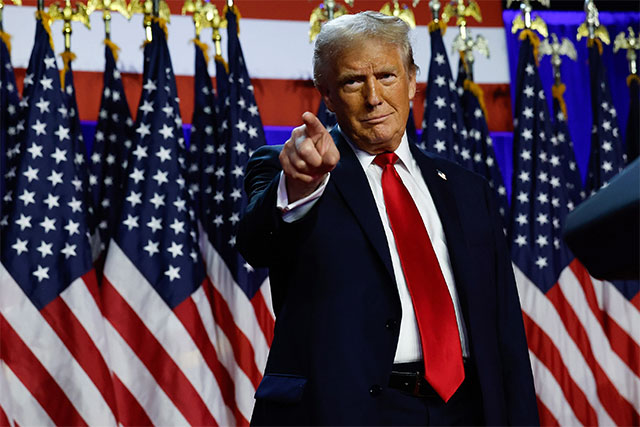China races to stockpile US chipsets before Trump returns to the White House
China and the United States have had a tense relationship over the past decades, over a range of economic and geopolitical issues. But in recent years, especially during President Donald Trump's first term, the tiny chips inside electronic devices have become a point of contention between the two world superpowers.
Now, as the 2016-2020 US president is about to return to the White House, China is actively preparing for a new war with the world's number one superpower on the trade and technology front. The most obvious sign is that the amount of US integrated circuits imported into China has skyrocketed.
In other words, China is accelerating its efforts to stockpile microchips from the United States as it seeks to hedge against a potential wave of sanctions from the incoming administration of President-elect Donald Trump, in order to minimize the impact of potential restrictions.
As the 47th president of the United States prepares to return to the White House for a second term, China is also preparing for a new round of sanctions and restrictions on its semiconductor industry. In fact, Trump has announced plans to impose tariffs of up to 60% on goods imported from China. In addition, Trump may also increase restrictions on the export of chips and GPUs to China.
China imported more than $1.11 billion worth of integrated circuits from the United States in October, representing a 60 percent increase year-on-year, according to a new report by the South China Morning Post.
Furthermore, customs data shows that China imported $9.61 billion worth of microchips from the United States in the first 10 months of the year, up 42.5 percent from 2023. China's monthly chip purchases from the United States have consistently exceeded $1 billion since June. Among the nine types of microchips imported from the United States, the country is particularly interested in purchasing processors, controllers, and CPU-based chips for storage and signal amplification.

Trump has proven that his promise to put China on the spot was not empty talk. In his first term as US president, Trump designated TikTok as a threat to US national security, sparking a trade war with China. Huawei is still relying on outdated 7-nanometer architecture for its next two Ascend processors, as US technology restrictions prevent the Chinese tech giant from accessing more advanced lithography machines.
The roots of this conflict are partly rooted in China's ambition to conquer Taiwan, the world's largest and best chipmaker. China's conquest of Taiwan and access to advanced chip manufacturing technology could be a national security disaster for the United States.
You should read it
- ★ Huawei had a further 3 months of running momentum before the US ban took effect
- ★ The United States surpasses China in the number of people infected with Covid-19
- ★ The US $ 10 billion contract between the Pentagon and Amazon threatens to collapse due to issues related to data processing.
- ★ The plane is full of iPhone 6 to the United States
- ★ Smartphones, laptops and smart wearables are about to be added with taxes, Apple, Amazon, Google like sitting on a fire